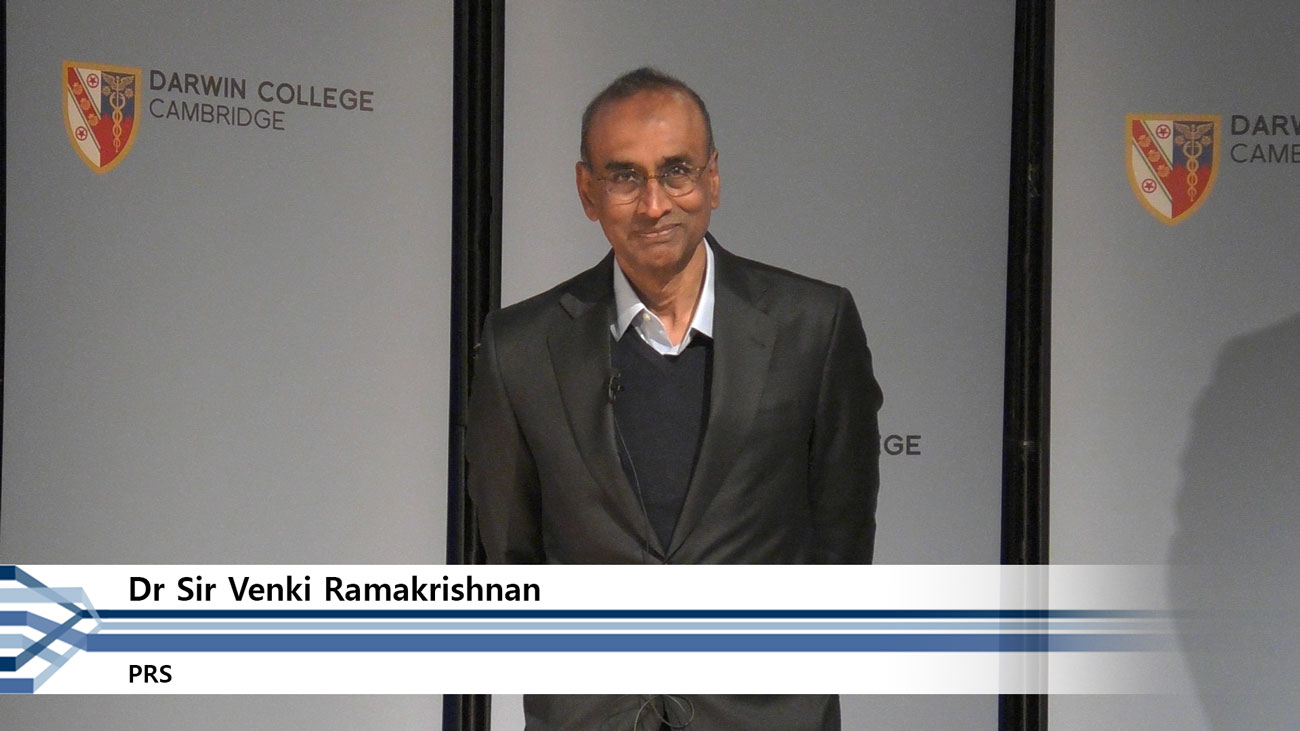Migration in Science
Duration: 1 hour 4 mins
Share this media item:
Embed this media item:
Embed this media item:
About this item

| Description: |
Progress in science depends on a rapid exchange of ideas and exposure to new approaches and viewpoints. Historically, this progress has been accelerated by the movement of people. Scientists have been among the most mobile of people, going where they perceive the action to be. This talk will explore examples from various periods in history on how mobility resulted in scientific development. It will also describe the reasons behind the moves in my own peripatetic life.
Biography Venki Ramakrishnan received his bachelor’s degree in physics from Baroda University in India in 1971 and his Ph.D. in physics from Ohio University in 1976. He then studied biology for two years at the University of California, San Diego before beginning his postdoctoral work with Peter Moore at Yale University. After a long career in the US, he moved to England in 1999 to become a group leader at the MRC Laboratory of Molecular Biology in Cambridge. He is also the current president of the Royal Society. Ramakrishnan has a long-standing interest in ribosome structure and function. In 2000, his laboratory determined the atomic structure of the 30S ribosomal subunit and its complexes with ligands and antibiotics. This work has led to insights into how the ribosome “reads” the genetic code, as well as into various aspects of antibiotic function. Ramakrishnan’s lab subsequently determined high-resolution structures of functional complexes of the entire ribosome at various stages along the translational pathway, which has led to insights into its role in protein synthesis during decoding, peptidyl transfer, translocation and termination. More recently his laboratory has been applying cryoelectron microscopy to study eukaryotic and mitochondrial translation. |
|---|
| Created: | 2018-03-06 08:41 | ||
|---|---|---|---|
| Collection: | Migration – Darwin College Lecture Series 2018 | ||
| Publisher: | Darwin College | ||
| Copyright: | Darwin College | ||
| Language: | eng (English) | ||
| Keywords: | Migration; Royal Society; Science; Ideas; | ||
| Credits: |
|
||
| Abstract: | Progress in science depends on a rapid exchange of ideas and exposure to new approaches and viewpoints. Historically, this progress has been accelerated by the movement of people. Scientists have been among the most mobile of people, going where they perceive the action to be. This talk will explore examples from various periods in history on how mobility resulted in scientific development. It will also describe the reasons behind the moves in my own peripatetic life. |
|---|---|
Available Formats
| Format | Quality | Bitrate | Size | |||
|---|---|---|---|---|---|---|
| MPEG-4 Video | 1280x720 | 3.01 Mbits/sec | 1.41 GB | View | ||
| MPEG-4 Video | 640x360 | 1.95 Mbits/sec | 937.41 MB | View | ||
| WebM | 1280x720 | 3.02 Mbits/sec | 1.42 GB | View | ||
| WebM | 640x360 | 722.76 kbits/sec | 338.79 MB | View | ||
| iPod Video | 480x270 | 526.07 kbits/sec | 246.60 MB | View | ||
| MP3 | 44100 Hz | 252.81 kbits/sec | 118.51 MB | Listen | ||
| MP3 | 44100 Hz | 126.4 kbits/sec | 59.25 MB | Listen | ||
| MP3 | 44100 Hz | 62.23 kbits/sec | 29.63 MB | Listen | ||
| Auto * | (Allows browser to choose a format it supports) | |||||

